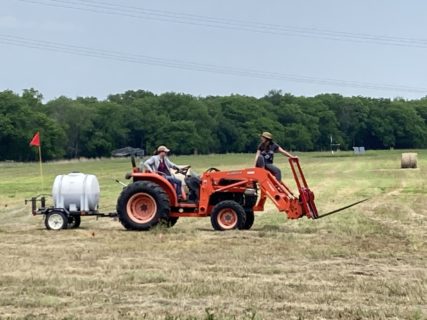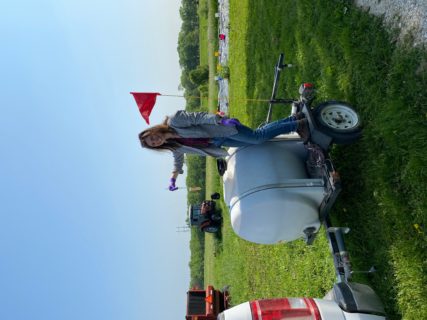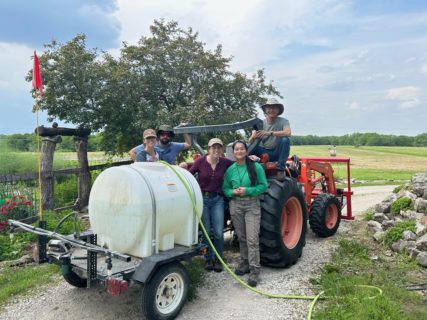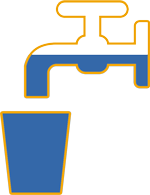Back to all articles
Partner Update: The Land Institute
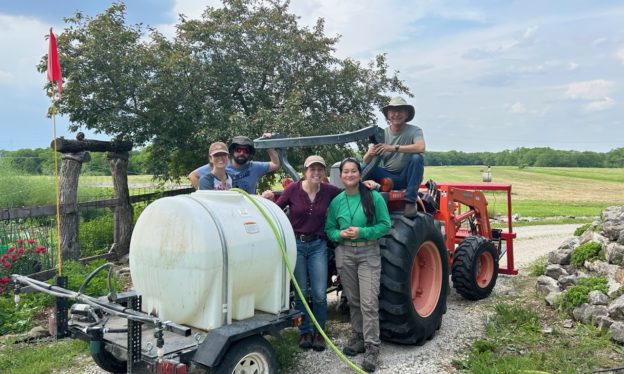
The soil ecology team after successful first application
The Land Institute, a non-profit research organization dedicated to developing perennial grain polycultures, launched a urine reclamation project last summer in collaboration with the Rich Earth Institute. Deep-rooted perennials efficiently utilize soil resources, but essential nutrients such as phosphorus and nitrogen are removed with harvest. Sustainable food systems must find ways to source these nutrients from sources that are also sustainable. This project explores how urine contributes to phosphorus in the soil, influences forage yields, and the social implications of implementing a urine reclamation project in the workplace. To investigate these questions, researchers collected urine from The Land Institute (TLI) campus and applied it to an alfalfa field grown in phosphorus deficient soil. TLI found that the urine significantly increased soil phosphorus indicating that it could be a viable source of phosphorus for locations with similarly deficient soils. TLI also detected a significant increase in soil sodium. Future work will explore the tradeoffs associated with urine fertilizers to soil fertility as high salinity levels could adversely affect plant growth, especially in semi-arid regions such as Kansas.
To better understand the cultural implications of this type of project, we also sent an anonymous survey to staff before and after urine collection to assess changes to project perception. We found that alignment with personal beliefs and the desire to save water and nutrients were strong motivators. Unfamiliarity with the collection system deterred participation. This suggested that people would have greater comfort with this practice using collection devices more similar to familiar toilets along with clear guidelines. Surprisingly, disgust was not reported, but hesitance to ask questions in front of peers indicated social discomfort and subsequently the need to normalize use of human excreta as a socially acceptable alternative nutrient-source. The finding that most participants were previously unaware of current phosphorus management highlighted the importance of raising awareness of unsustainable nutrient practices. Finally, as many participants expressed enthusiasm for adopting this practice for their home gardens, this project demonstrated potential to enhance openness to urine diversion systems going forward.
TLI is looking forward to diving deeper into the potential for urine to enhance soil phosphorus and forage growth while continuing to explore the socio-cultural barriers to adopting urine as a nutrient source in food systems.

